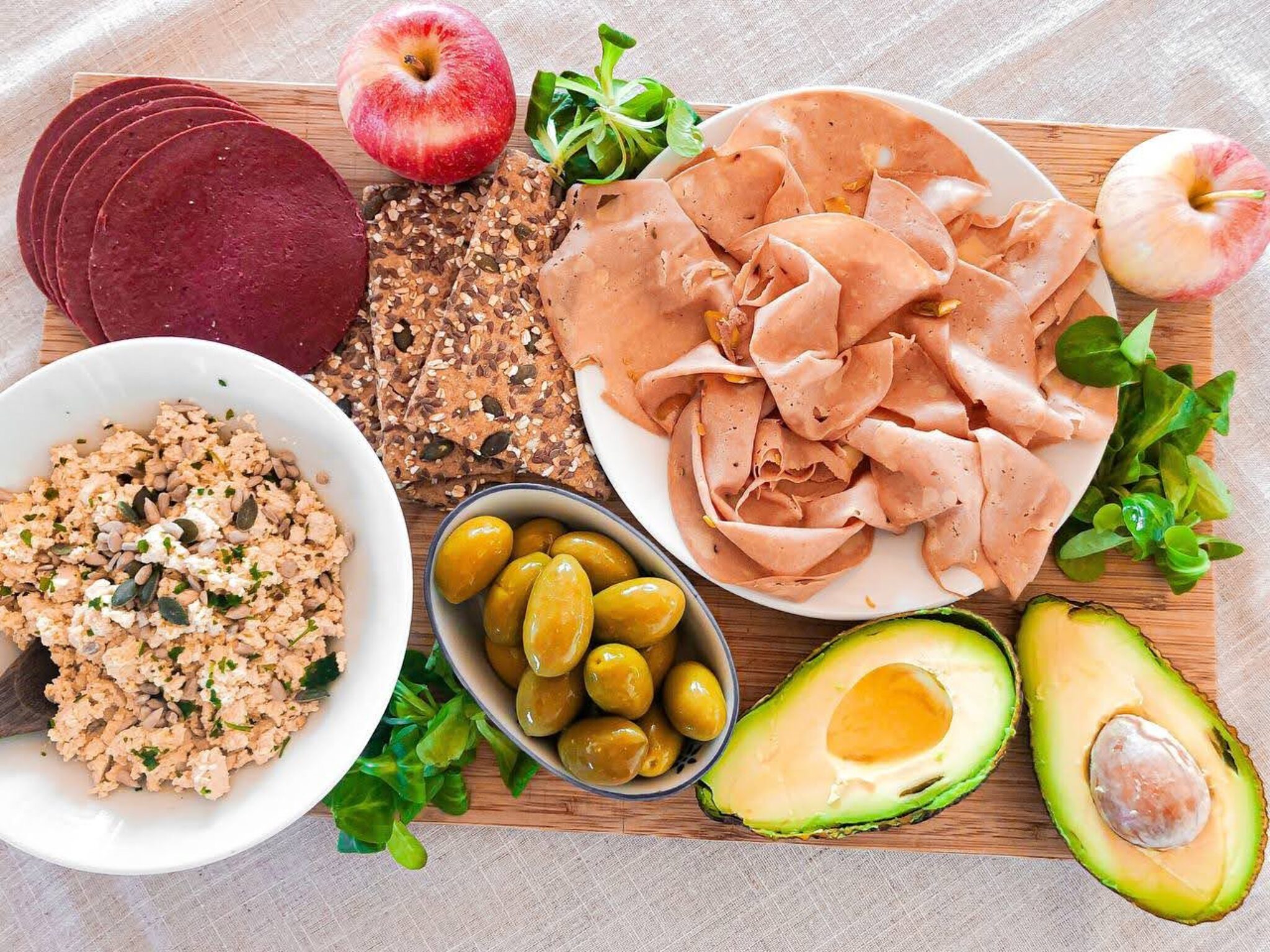54% of Europeans Avoid Plant-Based Meat Because It’s Ultra-Processed, with 65% Concerned About Health Impact
7 Mins Read
A new 17-country survey says that 65% of Europeans are concerned about the health implications of ultra-processed foods, with over half of respondents avoiding plant-based meats because they are ultra-processed.
With an increasing focus on nutrition and health, the debate around ultra-processed foods (UPFs) and plant-based meat rages on with a new 9,787-person, 17-country poll by European research hub the EIT Food Consumer Observatory.
The survey has found that 65% of Europeans believe UPFs are unhealthy, and 60% think they’re bad for the environment. And when it comes to plant-based meat, their association with ultra-processing deters 54% of Europeans from buying them.
The study highlights a lack of awareness of what constitutes UPFs, as well as a misconception about the connection between UPFs and health – despite UPFs taking up a majority of consumers’ diets. In the UK alone, UPFs make up 57% of an average person’s diet, and up to 80% when it comes to children or people with lower incomes. And according to the survey, 55% of Europeans consume UPFs at least once a week.
“Whether it’s a pre-packaged pasta sauce for a quick meal at home, or a fast-food treat meal out with the family, ultra-processed foods are part of the day-to-day fabric of consumer diets across Europe. However, it’s evident from these findings that people have real concerns about the health and sustainability aspects of these foods,” said Sofia Kuhn, director of public engagement at EIT Food.
Europeans link UPFs to health conditions but continue to eat them
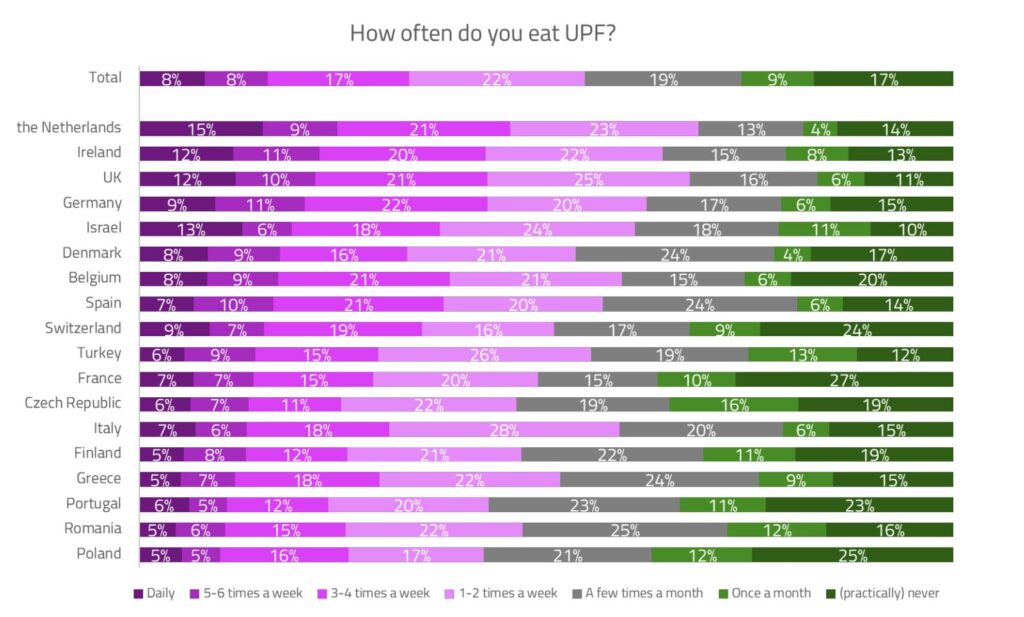
UPFs originate from the Nova classification. Established in 2009 by a Brazilian group led by nutrition and public health professor Dr Carlos Monteiro, it classed food into four subgroups: unprocessed/minimally processed foods, processed culinary ingredients, processed foods, and UPFs. The latter comprised industrial formulations and techniques like extrusion or pre-frying, combined with cosmetic additives and substances of little culinary use, like high-fructose corn syrup, hydrogenated oils or modified starch.
The discourse around UPFs has amplified since British infectious diseases physician Dr Chris van Tulleken‘s book, Ultra-Processed People: The Science Behind Food That Isn’t Food, came out in April 2023. Here, he suggested that large food companies are pushing consumers towards an increasingly processed diet.
Experts have found that UPFs can raise the risk of heart disease, stroke, obesity, type 2 diabetes, breast and colorectal cancer, and hypertension. Along these lines, the EIT Food Consumer Observatory survey found that a third of Europeans believe UPFs contribute to obesity, diabetes and other lifestyle-related health issues, while 65% think they will cause issues later in life.
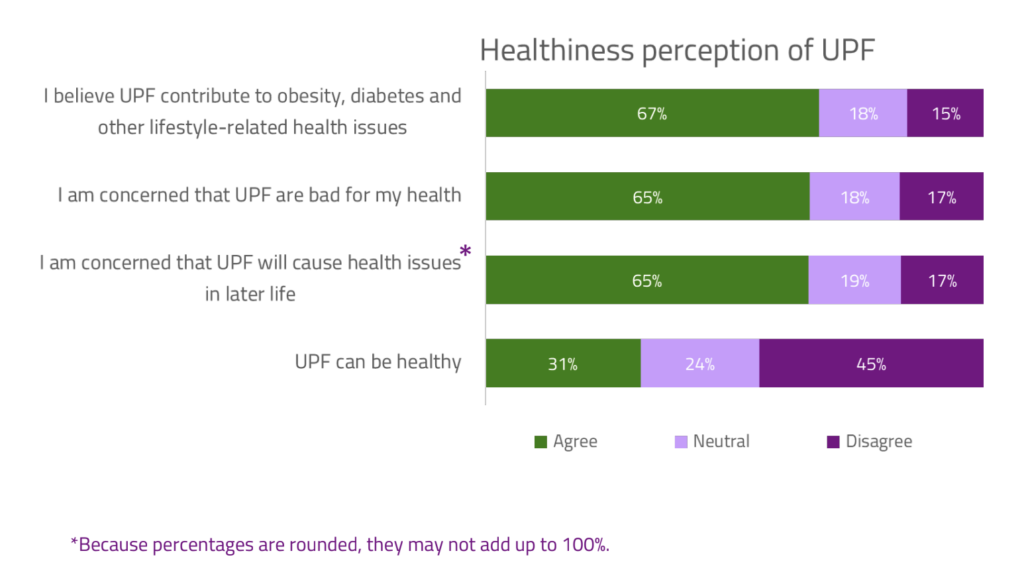
Additionally, a third dislike it when their foods have ingredients they can’t recognise. But despite that, only 56% make special efforts to avoid UPFs. There are three key reasons for this: convenience, price and taste. The ease of preparation (or none at all) means 41% of Europeans find UPFs convenient compared to minimally processed foods, while an even greater 49% think the former are cheaper than the latter. Many also call UPFs like fast-food takeouts to be tastier than homemade food, while some see them as a treat or comfort food.
Nearly a third (31%), meanwhile, believe UPFs can be healthy, chiming with a study published in The Lancet last year, which based its findings on the dietary and disease history of 266,666 people in seven European countries to suggest that some UPFs can be good for you. However, 40% of consumers polled by the EIT Food Consumer Observatory don’t trust that UPFs are regulated well enough by authorities to ensure they’re safe and healthy in the long term.
The UPF link with plant-based meat
There is a lack of awareness when it comes to the world of UPFs, particularly with their links to healthiness, as well as what foods are actually ultra-processed. The survey found that 54% of Europeans avoid meat alternatives due to their status as UPFs, particularly those who don’t follow meatless diets.
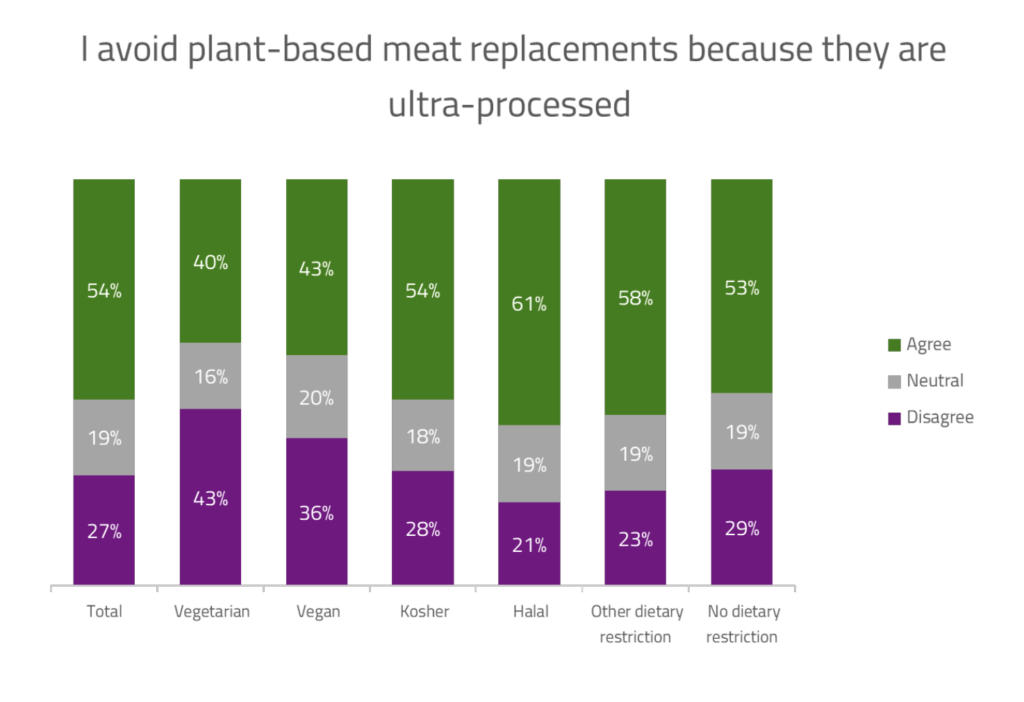
The gap in education is highlighted by the fact that 61% of consumers correctly identified energy drinks as ultra-processed, but only 34% did so for vegan cheese and 36% for vegan chicken. A hyperawareness of UPFs towards the end of the survey project may have influenced consumers less familiar with traditional plant proteins like tempeh and tofu to label those as UPFs too.
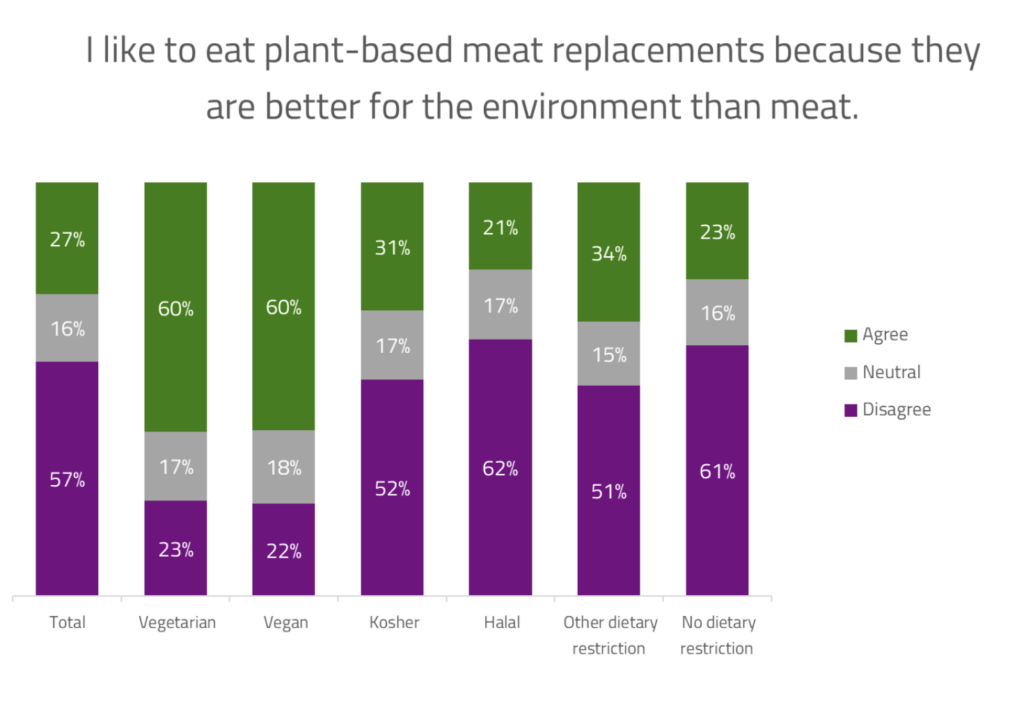
More surprisingly, the climate impact of meat and plant-based analogues is not a persuasive argument for many, with only 27% of Europeans believing vegan alternatives to be better for the climate, and 57% feeling they have a worse impact. This is despite research showing that animal-derived foods like meat and dairy cause twice as many emissions as plant-based foods and vegan diets can reduce emissions, water pollution and land use by 75% compared to meat-rich diets.
This is concerning for multiple reasons. Europeans tend to be more climate literate than their peers in the US, Asia and elsewhere. Further plant-based meat consumption and flexitarianism has found the most success in Western European countries. The study’s results are a blow to years of marketing by plant-based meat companies about the environmental credentials of their products. Leading plant-based meat companies like Impossible Foods launched brand campaigns on the LCA of their ground beef compared to meat from cows when they first debuted their Impossible burger back in 2016.
Lately, companies like Impossible Foods and rival Beyond Meat have shifted focus to the health credentials of these analogues. These efforts seem to have fallen on deaf ears if the UPF survey’s results are to be believed, which aren’t helped by the fact that governments like the UK are backing campaigns promoting meat and dairy.
Some have pushed back against a simplistic black-and-white perspective on UPFs, calling them necessary to feed the world and arguing that the lack of an agreed definition spurs confusion about what is or isn’t a UPF. Others have noted that the NOVA system is based on the degree of processing of a certain food but does not speak to nutrition.
“Some campaigns have deliberately chosen to make a link between plant-based meat and the term ‘ultra-processed’. Their communications suggest – incorrectly – that the term ‘UPF’ is a synonym for ‘unhealthy’,” Churchill Fellow Jenny Chapman told us earlier this month. These campaigns play into concerns some people have around foods that are new – often called ‘food neophobia‘… Some campaigns really hone in on this, by using words like ‘fake’ and ‘unnatural’ to describe plant-based meats (which are safe, nutritious foods).”
UPF recommendations for food companies and health authorities
The report offers key recommendations for authorities, manufacturers and retailers around UPFs. Health institutions and scientists need to define UPFs and make more conclusive and substantiated statements about their short- and long-term healthiness. Health authorities also need to consider the best way to educate consumers about food processing, what it can look like, and its health effects.
National food recommendations need to emphasise the difference between whole foods and UPFs, and clarify whether plant-based substitutes are UPFs and if that matters for their overall healthiness. Policies can also include restricting UPF promotions, like the UK’s plans to ban two-for-one deals on junk food.
Manufacturers, meanwhile, can look into cleaner labels for processed foods with fewer “artificial-sounding” ingredients. Plant-based meat makers need to consider that their association with UPFs is hindering them, and thus should explore cleaner labels without additives or transformation of ingredients (like protein isolates).

As for retailers, they can bring attention to packaged foods that aren’t ultra-processed (like tempeh or tofu), while also deciding against promoting UPFs in discount deals, instead pushing minimally or moderately produced equivalents.
“The latest findings from the EIT Food Consumer Observatory demonstrate a clear knowledge gap in how consumers identify, understand and engage with how their food is produced,” said Klaus Grunert, director of the EIT Food Consumer Observatory.
“Giving consumers clearer labelling, guidance and education could help them to better understand and engage with this issue, but it’s also important that concerns over processed food are considered in the wider context of people’s diets and wellbeing. It’s also crucial that we continue to bolster our understanding and agreement of how we classify, evaluate and label foods, so that our advice to consumers is informed by the latest science.”
Kuhn added: “As a sector, we need to create an environment which empowers individuals to make informed decisions about their diets, and foster a dialogue that not only educates but also inspires positive choices. That way, we can drive forward a healthier and more sustainable food system for all.”

